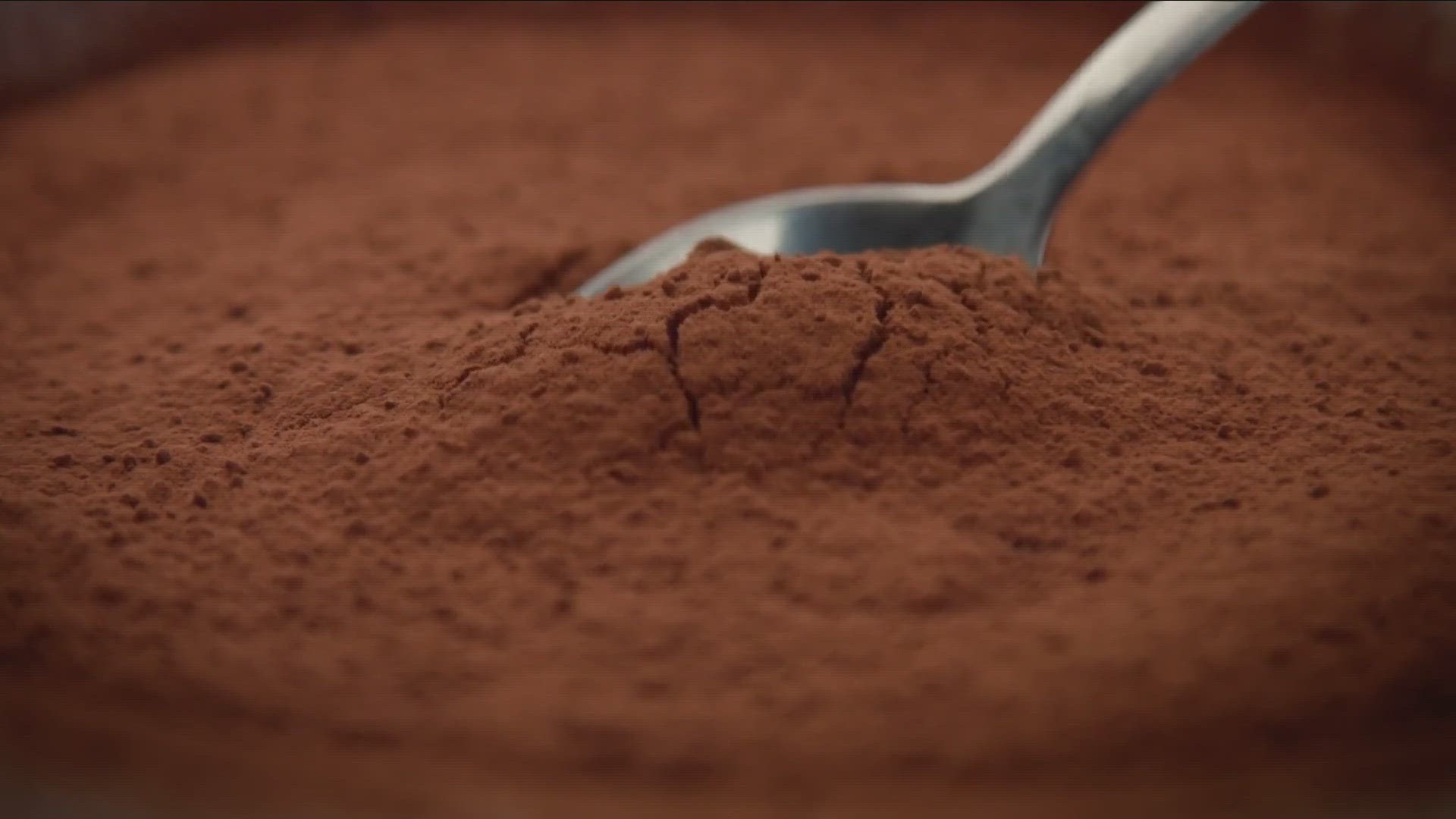BUFFALO, N.Y. — How do heavy rains in Western Africa impact chocolate prices in Western New York?
The rains cause black pod rod, a fungus that decimates cacao plants, which ultimately impacts cocoa production, which ultimately means higher prices for chocolate manufacturers.
"Basically the price of chocolate in this country, it's up roughly 20%," said Jack Ampuja.
Ampuja is the Wegman Endowed Director of Food Industry Innovation and Supply Chain Excellence at Niagara University and a supply chain expert.
"About three-quarters of the world crop comes out of West Africa, Cote d'Ivoire, Ghana, Benin, countries like that," Ampuja said. "They've had weather problems there."
Cocoa futures closed at $3,296/metric ton on July 11, that's up 42.99% year to year. The peak price for cocoa was back in 1977, over $5,700/ton.
"I think that consumers will notice it come Halloween, when they're buying bulk candy, they're buying a whole bunch of chocolate at one time," Ampuja said. "I think a lot of people think well, this is pretty pricey.'
Halloween quickly rolls into Christmas, which rolls into Valentine's Day, which rolls into Easter. Ampuja says prices will remain high for the next several months.
How will you notice this as a consumer? Ampuja says the name-brand chocolate brands that you find at nearly every retailer may not raise their prices for an individual bar, but the sizes will change.
"They'll shrink the chocolate bar," Ampuja said. "So the consumer doesn't necessarily see it, they're still paying, I don't know, $2 for a chocolate bar, it'll just be a smaller bar."
Artisan chocolate makers, however, will see a big impact, particularly if they don't buy their chocolate on contract like Platter's in North Tonawanda does.
"We've grown to the point where we contract for our chocolate," said Joe Urban, owner of Platter's. "Typically it's a 12-month contract for a certain value and for us, it's about 200,000 pounds."
Other small artisan chocolate businesses may have to purchase their raw materials in smaller quantities, which means they'll see greater fluctuations in cocoa prices.
But even Platter's see's the writing on the wall. Not only are cocoa prices higher, but so are sugar, corn syrup, packaging, shipping, and other costs. Urban says that unfortunately, consumers can't really do anything about the rising costs of those raw materials.
"It's inevitable we're going to have to pass that down the line but we will have supply it's just going to cost more," Urban said. "It's out of the control as a consumer you know there's really not a good answer to that."

